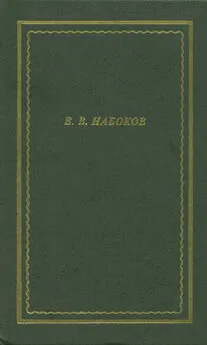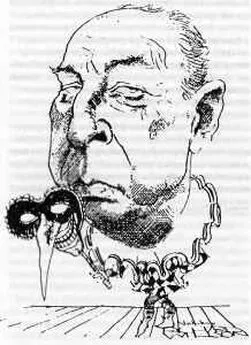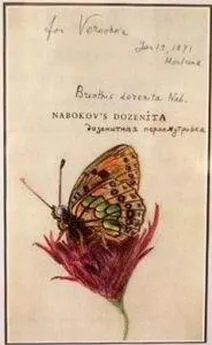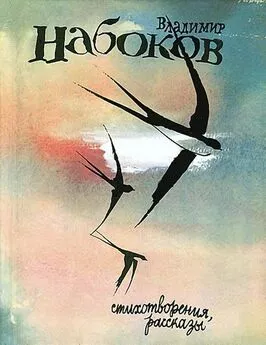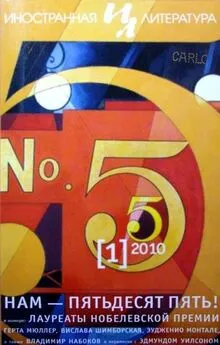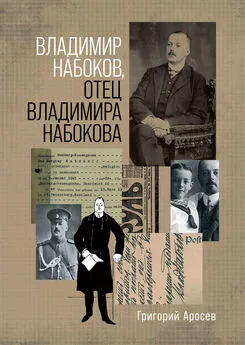Владимир Набоков - Стихотворения
- Название:Стихотворения
- Автор:
- Жанр:
- Издательство:Академический проект
- Год:2002
- Город:СПб.
- ISBN:5-7331-0160-1
- Рейтинг:
- Избранное:Добавить в избранное
-
Отзывы:
-
Ваша оценка:
Владимир Набоков - Стихотворения краткое содержание
Наиболее полное из всех до сих пор изданных в России собраний поэтических произведений крупнейшего русского/американского писателя XX века. В связи с уникальной спецификой двуязычного творчества Набокова в книге публикуются также его стихи, написанные на английском языке, и поэтические переводы на английский язык классических текстов русской поэзии (Пушкин, Лермонтов, Фет, Тютчев, Ходасевич). Публикуется также ряд переводов на французский язык и стихотворения из романов.
Стихотворения - читать онлайн бесплатно полную версию (весь текст целиком)
Интервал:
Закладка:
(Insomnia, your stare is dull and ashen,
my love, forgive me this apostasy.)
420. THE ROOM {*}
The room a dying poet took
at nightfall in a dead hotel
had both directories — the Book
of Heaven and the Book of Bell.
It had a mirror and a chair,
it had a window and a bed,
its ribs let in the darkness where
rain glistened and a shopsign bled.
Not tears, not terror, but a blend
of anonymity and doom,
it seemed, that room, to condescend
to imitate a normal room.
Whenever some automobile
subliminally slit the night,
the walls and ceiling would reveal
a wheeling skeleton of light.
Soon afterwards the room was mine.
A similar striped cageling, I
groped for the lamp and found the line
«Alone, unknown, unloved, I die»
in pencil, just above the bed.
It had a false quotation air.
Was it a she, wild-eyed, well-read,
or a fat man with thinning hair?
I asked a gentle Negro maid,
I asked a captain and his crew,
I asked the night clerk. Undismayed,
I asked a drunk. Nobody knew.
Perhaps when he had found the switch
he saw the picture on the wall
and cursed the red eruption which
tried to be maples in the fall?
Artistically in the style
of Mr. Churchill at his best,
those maples marched in double file
from Glen Lake to Restricted Rest.
Perhaps my text is incomplete.
A poet's death is, after all,
a question of technique, a neat
enjambment, a melodic fall.
And here a life had come apart
in darkness, and the room had grown
a ghostly thorax, with a heart
unknown, unloved — but not alone.
421. VOLUPTATES TACTIONUM [16] {*}
Some inevitable day
On the editorial page
Of your paper it will say,
«Tactio has come of age».
When you turn a knob, your set
Will obligingly exhale
Forms, invisible and yet
Tangible — a world in Braille.
Think of all the things that will
Really be within your reach!
Phantom bottle, dummy pill,
Limpid limbs upon a beach.
Grouped before a Magnotact,
Clubs and families will clutch
Everywhere the same compact
Paradise (in terms of touch).
Palpitating fingertips
Will caress the flossy hair
And investigate the lips
Simulated in midair.
See the schoolboy, like a blind
Lover, frantically grope
For the shape of love — and find
Nothing but the shape of soap.
422. RESTORATION {*}
To think that any fool may tear
by chance the web of when and where.
O window in the dark! To think
that every brain is on the brink
of nameless bliss no brain can bear,
unless there be no great surprise —
as when you learn to levitate
and, hardly trying, realize
— alone, in a bright room — that weight
is but your shadow, and you rise.
My little daughter wakes in tears:
She fancies that her bed is drawn
into a dimness which appears
to be the deep of all her fears
but which, in point of fact, is dawn.
I know a poet who can strip
a William Tell or Golden Pip
in one uninterrupted peel
miraculously to reveal,
revolving on his fingertip,
a snowball. So I would unrobe,
turn inside out, pry open, probe
all matter, everything you see,
the skyline and its saddest tree,
the whole inexplicable globe,
to find the true, the ardent core
as doctors of old pictures do
when, rubbing our a distant door
or sooty curtain, they restore
the jewel of a bluish view.
423. THE POPLAR {*}
Before this house a poplar grows
Well versed in dowsing, I suppose,
But how it sighs! And every night
A boy in black, a girl in white
Beyond the brightness of my bed
Appear, and not a word is said.
On coated chair and coatless chair
They sit, one here, the other there.
I do not care to make a scene:
I read a glossy magazine.
He props upon his slender knee
A dwarfed and potted poplar tree.
And she — she seems to hold a dim
Hand mirror with an ivory rim
Framing a lawn, and her, and me
Under the prototypic tree,
Before a pillared porch, last seen
In July, nineteen seventeen.
This is the silver lining of
Pathetic fallacies: the sough
Of Populus that taps at last
Not water but the author's past.
And note: nothing is ever said.
I read a magazine in bed
Or the Home Book of Verse; and note:
This is my shirt, that is my coat.
But frailer seers I am told
Get up to rearrange a fold.
424. LINES WRITTEN IN OREGON {*}
Esmeralda! Now we rest
Here, in the bewitched and blest
Mountain forests of the West.
Here the very air is stranger.
Damzel, anchoret, and ranger
Share the woodland's dream and danger.
And to think I deemed you dead!
(In a dungeon, it was said;
Tortured, strangled); but instead —
Blue birds from the bluest fable,
Bear and hare in coats of sable,
Peacock moth on picnic table.
Huddled roadsigns softly speak
Of Lake Merlin, Castle Creek,
And (obliterated) Peak.
Do you recognize that clover?
Dandelions, I'or du pauvre? [17]
(Europe, nonetheless, is over).
Up the turf, along the burn,
Latin lilies climb and turn
Into Gothic fir and fern.
Cornfields have befouled the prairies
But these canyons laugh! And there is
Still the forest with its fairies.
And I rest where I awoke
In the sea shade — l'ombre glauque [18]—
Of a legendary oak;
Where the woods get ever dimmer,
Where the Phantom Orchids glimmer —
Esmeralda, immer, immer. [19]
425. ODE TO A MODEL {*}
I have followed you, model,
in magazine ads through all seasons,
from dead leaf on the sod
to red leaf on the breeze,
from your lily-white armpit
to the tip of your butterfly eyelash,
charming and pitiful,
silly and stylish.
Or in kneesocks and tartan
standing there like some fabulous symbol,
parted feet pointing outward
— pedal form of akimbo.
On a lawn, in a parody
Of Spring and its cherry tree,
near a vase and a parapet,
virgin practicing archery.
Ballerina, black-masked,
near a parapet of alabaster.
«Can one — somebody asked —
rhyme „star“ and „disaster“?»
Can one picture a blackbird
as the negative of a small firebird?
Can a record, run backward,
turn «repaid» into «diaper»?
Can one marry a model?
Kill your past, make you real, raise a family,
by removing you bodily
from back numbers of Sham?
426. ON TRANSLATING «EUGENE ONEGIN» {*}
A poet's pale and glaring heard,
A parrot's screech, a monkey's chatter,
And profanation of the dead.
The parasites you were so hard on
Are pardoned if I have your pardon,
O, Pushkin, for my stratagem:
I traveled down your secret stem,
And reached the root, and fed upon it;
Then, in a language newly learned,
I grew another stem and turned
Your stanza patterned on a sonnet,
Into my honest roadside prose —
All thorn, but cousin to your rose.
Like elongated lights that twist
In the black mirror of a river
Between the city and the mist.
Elusive Pushkin! Persevering,
I still pick up Tatiana's earring,
Still travel with your sullen rake.
I find another man's mistake,
I analyze alliterations
That grace your feasts and haunt the great
Fourth stanza of your Canto Eight.
This is my task — a poet's patience
And scholiastic passion blent:
Dove-droppings on your monument.
427. RAIN {*}
How mobile is the bed on these
nights of gesticulating trees
when the rain clatters fast,
the tin-toy rain with dapper hoof
trotting upon an endless roof,
traveling into the past.
Upon old roads the steeds of rain
Slip and slow down and speed again
through many a tangled year;
but they can never reach the last
dip at the bottom of the past
because the sun is there.
428. THE BALLAD OF LONGWOOD GLEN {*}
That Sunday morning, at half past ten,
Two cars crossed the creek and entered the glen.
In the first was Art Longwood, a local florist,
With his children and wife (now Mrs. Deforest).
In the one that followed, a ranger saw
Art's father, stepfather and father-in-law.
The three old men walked off to the cove.
Through tinkling weeds Art slowly drove.
Fair was the morning, with bright clouds afar.
Children and comics emerged from the car.
Silent Art, who could state at a thing all day,
Watched a bug climb a stalk and fly away.
Pauline had asthma, Paul used a crutch.
They were cute little rascals but could not run much.
«I wish», said his mother to crippled Paul,
«Some man would teach you to pitch that ball».
Silent Art took the ball and tossed it high.
It stuck in a tree that was passing by.
And the grave green pilgrim turned and stopped.
The children waited, but no ball dropped.
«I never climbed trees in my timid prime»,
Thought Art; and forthwith started to climb.
Now and then his elbow or knee could be seen
In a jigsaw puzzle of blue and green.
Интервал:
Закладка:
